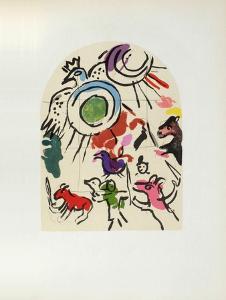
As many of you already know, I have not found popular writing advice particularly helpful. I find word counts and keeping my butt in the chair and strict writing struggles to be overly rigid techniques that make incorporating a writing practice into my daily life even harder than it should be. As a result, I’m always playing around with ideas around what does work for me, and why. And while I do know that regular attention to my writing practice is vital to its health, it can be difficult to describe what that attention looks like, when it doesn’t look like typing on a keyboard. This is an interesting problem to have, because approximately 88% of my writing practice does not involve typing on a keyboard.
Yet, because I’m convinced I cannot be the only one for whom traditional writing advice falls flat, I still feel compelled to try to describe the kind of practice that resonates with me. Recently, I’ve found it helpful to take some of the focus away from trying to describe what the practice looks like, and consider instead the mental landscape I’m seeking to cultivate. And I’m certain that one key feature of that mental landscape is intentional wonder. This is the kind of wondering I do when I have a general idea of what I want to say, but sharpening and clarifying that idea feels as appropriate as trying to sharpen and clarify a cloud. This is one of the main reasons why I don’t force words down on the paper when I’m entertaining something that refuses, as of yet, to materialize; I might get a few sentences written, but if I try to milk an idea too early, I risk getting much less out of it than I might if I wait until it’s ready.
I suppose cultivating such intentional wonder might be usefully understood as a pre-drafting state, but so much of my work happens within this space of intentional wonder, I’m not sure “pre” belongs anywhere in a conception of it. Four years into my current work, for example, I’ve spent the past few months trying to decide how I want to get my primary character through a particularly critical and sticky transition point. Much of this time has been spent stopping and starting and hemming and hawing and reading and walking and staring into the middle distance, which is another way of saying that it’s been progressing beautifully, despite the agony that always accompanies this nebulous state of being. But even though I am finally beginning to emerge from this lengthy period of slogging through, even though I have finally determined what scenes I will be writing and how they will generally unfurl, I’m not yet ready to go slashing through the underbrush.
Because despite this rare and delicious road map that I’ve fought tooth and nail to develop, despite the clarity and satisfying plan it offers, something even more powerful still calls, asking me to stay still just a moment longer, to listen for the possibility of just one more strange visitor, even though everyone else appears to have arrived. And it’s not doubt – in fact, it’s quite the opposite of doubt. It’s a conviction that arises out of the feeling that if I can resist definition just a moment longer, if I can just lightly set my characters into the time and space I’ve carved out for them while still giving them plenty of freedom to wander around however they might wish, something strange and curious and wonderful is likely to emerge from the shadows. Sure, I’d love to just forge ahead, writing scenes and chapters and swallowing pages whole, but I know that nothing is more important than listening when intentional wonder tugs at my sleeve. I might have finally caught sight of the mythical creature I’ve been stalking that no one else believes can exist, but I know that trapping it in a net is going to be far less rewarding than seeing how it might move freely, on its own. Perhaps there will be less proof of its existence, but in the end, I’ll have a much better story to tell.
Art: Jerusalem Window, Sketch, Marc Chagall
I so needed to read this. Thank you.
I, too, needed to hear this today. I have been trying to let my 2nd draft continue it’s kaleidoscopic shifting and to believe that the final shift into focus will come if I give it a chance. And giving myself kudos instead of snark for the waiting, waiting, waiting. Your words support me so much in this. Thank you, Liza.
Yes! The waiting can be more of a challenge than the writing. It is for me, at least! Love to be in solidarity with you both.